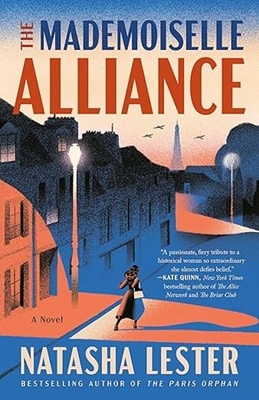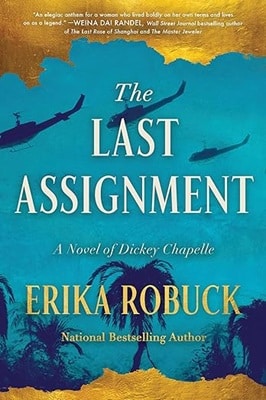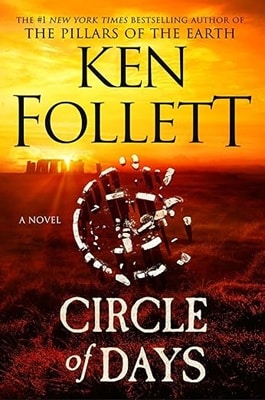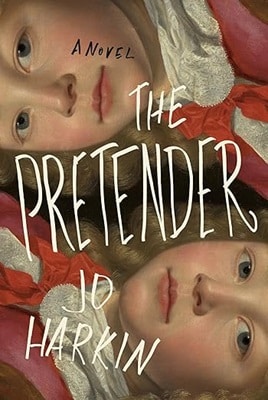
Q: What inspired you to write this story?
Naomi: This story came to me when I was walking down a street in Jerusalem, minding my own business during Covid. I ran into an old friend, the head of the Simon Wiesenthal Center in Israel, Efraim Zuroff. He tells me about a story that flabbergasted me. He co-authored a book titled Our People with Lithuania’s famous author, Ruta Vanagaite. She invited him to be a keynote speaker in Lithuania about Nazi War Criminals. This was the starting point for this story. I wrote a dialogue between the Nazi hunter, and the son of those living during World War II. This is a story about the here and now.
Q: Is the narrative in your book rooted in factual events?
Naomi: Yes. Ruta and Efraim traveled around Lithuania to gain eyewitness testimony. Instead of her convincing him that Lithuania did not commit war crimes, the situation convinced her. They became very close on this trip and fell in love, just as in my book. I never thought Ruta, a child of a preparator and Efraim, a Nazi hunter could get close.
Q: Can you provide some insight into Lithuania’s role during the Holocaust?
Naomi: Lithuanians killed over 96% of the Jewish community. It was neighbors, teachers, and doctors, self-appointed policemen who shot and murdered Jews. They killed as a percentage more of the Jewish community than any other country, including Germany. Today, they are one of the chief Holocaust distortionists. They are trying to falsify what happened to cover their tracks. They are attempting to use a Double Holocaust theory. They say everybody suffered, look at what Stalin did to us.
Q: How would you describe the severity of the actions of Lithuanian executioners during this period?
Naomi: They killed with such sadism, ferocity, joy, and enthusiasm. They held public parties to give out the spoils after indiscriminately murdering men, women, and children. I based the facts from first person history and testimonies.
Q: Your narrative touches on the theme of acknowledgment. Could you elaborate on this?
Naomi: There can be reconciliation and forgiveness. But on what basis? First, there must be a recognition of the truth. There must be respect for the mass graves that are being treated like garbage dumps. The mass graves have not been marked in any way. They must stop painting over Jewish cemeteries and building shopping malls. This story is not going away because there has not been any justice and a final meeting of minds.
Q: Given the current events in Ukraine, do you think many are unaware of Ukraine’s actions against Jews during WWII?
Naomi: They joined mobile killing units. There were squads made up of Lithuanians and Ukrainians. I wrote the book now because people are being honored that were Holocaust perpetrators. Just look at what just happened in Canada where they tried honoring a Ukrainian who was in the Waffen SS unit of Hitler.
Q: Could you give us a brief character sketch of Dr. Darius Vidas, one of your main characters?
Naomi: Unpredictable, impulsive, organized, and a novelist. He is someone who wants to seek justice. He starts out thinking justice would clear the Lithuanians of the terrible things they were accused of doing. As time goes on, he realizes his country was involved in such savage brutality. He becomes a true partner to the heroine, Milia, the Nazi hunter. He has guts as he became a true Lithuanian patriot. He has a lot to lose, everything he has accomplished, if he agrees with Milia.
Q: How about the heroine of your story, Milia Gottstein-Lasker? How would you describe her?
Naomi: She has a dark view of the world, a cynic, with an endless quest for justice. She compartmentalizes because she is a Nazi hunter. She is based on my friend’s experiences, Efraim. She confronts the truth about what happened to her namesake. To make her character whole I had her deal with a lot of things: a marriage breaking down and someone who questions her own self-worth as a woman. She has a lot of insecurities and is losing her sense of purpose. She is trying to figure out where her life is going personally and professionally.
Q: How does the dynamic evolve between these two protagonists, Darius and Milia?
Naomi: The two of them are in mid-life crisis. But more importantly, they are on a journey together. They want to accomplish something important in both their lives. They start out as enemies because he wants to prove everything she has said about the Lithuanian atrocities is false. But then he realizes she is speaking the truth. They learned to respect each other and to have compassion. They now trust each other. Their relationship was a symbol for the rest of the world. Both are honest enough to accept the truth.
Q: What is the key message or takeaway you’d like readers to derive from your book?
Naomi: I want them to understand what must be done to honor the victims and to expose all these bogus distortions by countries like Lithuania. They are putting forward Holocaust distortions to erase, cover-up, and rewrite history and silence the voices. I wrote this book quote, “It was not the Jews gripping the past, it was the past gripping the Jews. It will never let them go until there is some kind of reckoning.” This is exactly how I think and feel. These countries in Europe must tell what happened and return the spoils they took. The quote in the acknowledgement summarizes my feelings, “Milia and Darius are both fictional characters. Their spirits are real and live in all people whose histories have made them enemies. It is up to us, the living, to make peace with one another.” As Milia says in her speech, there are five things that must be done: mainly Lithuanians need to stop lying about their past, stop honoring the perpetrators, tell the truth to their children, compensate the victims, and make Holocaust education important.
Q: Do you have any plans for your next writing venture?
Naomi: One never knows. At this point, we will see what happens.
In ‘The Enemy Beside Me’ by Naomi Ragen, the Holocaust is vividly portrayed through the intricate journeys of its characters. In light of the brutality inflicted by Hamas in Israel, it’s essential to keep the memories of Holocaust atrocities alive. Grounded in historical facts, the book sheds light on how some Eastern European countries, specifically Lithuania, left a deeply disturbing mark on Holocaust history. Lithuanians vehemently persecuted Jews, who were their fellow countrymen.
The narrative unfolds with Milia, an Israeli Jew, dedicated to bringing Nazi war criminals to justice. Darius, a college professor in Lithuania, invites Milia to address a conference in his country. Her poignant speech recounts the harrowing tales of families who were tortured, violated, and murdered by people they once called neighbors. Contrary to this reality, some Lithuanians audaciously claimed they were saviors of the Jews, a gross misrepresentation of the truth.
This book is essential reading for those seeking to understand and remember this dark chapter of history. Ragen skillfully weaves the brutality of events through her characters’ stories, but she also delves deep into their personal tales. As Milia and Darius embark on their journey, their shared experiences transform their relationship from one of distrust and conflict to deepening closeness and understanding.






